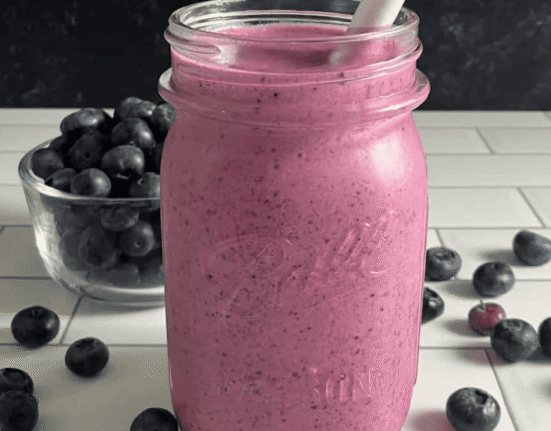Beneath the surface of our daily choices lies a bustling universe – the gut, a complex ecosystem teeming with life and activity. Often overlooked until discomfort strikes, gut health plays a vital role far beyond digestion, influencing everything from mood to immunity. But nurturing this hidden world doesn’t require complicated routines or costly supplements. In this article, we explore how to improve gut health naturally, uncovering simple, science-backed strategies that can transform your well-being from the inside out. Whether you’re seeking balance after a bout of illness or aiming to optimize your overall health, these approachable tips offer a gentle path to a happier, healthier gut.
Table of Contents
- Understanding the Role of Gut Microbiome in Overall Health
- Incorporating Fiber-Rich Foods for a Thriving Digestive System
- Harnessing the Power of Fermented Foods and Probiotics
- Lifestyle Habits that Promote a Balanced Gut Environment
- Mindful Eating Practices to Support Digestive Wellness
- Q&A
- In Retrospect

Understanding the Role of Gut Microbiome in Overall Health
The gut microbiome is a thriving ecosystem of trillions of microbes residing within our digestive tract. These microscopic inhabitants play a vital role in digesting food, producing essential vitamins, and regulating the immune system. An imbalance in this microbial community can lead to various health challenges, including digestive disorders, weakened immunity, and even mental health issues. Maintaining diversity and balance in these gut bacteria ensures the body operates smoothly, from nutrient absorption to inflammation control.
To foster a flourishing microbiome, it’s important to focus on lifestyle habits that support microbial health. Some effective strategies include:
- Eating a varied, fiber-rich diet filled with fruits, vegetables, and whole grains to nourish beneficial bacteria
- Incorporating fermented foods like yogurt, kimchi, and sauerkraut which introduce probiotics
- Limiting processed foods and excess sugar which can fuel harmful microbes
- Managing stress through mindfulness or physical activity, as stress negatively impacts gut flora balance
- Prioritizing adequate sleep to support overall bodily functions and microbial restoration
| Factor | Impact on Gut Microbiome |
|---|---|
| High Fiber Intake | Promotes beneficial bacterial growth |
| Antibiotic Overuse | Disrupts microbial balance |
| Fermented Foods | Introduce probiotics and enhance diversity |
| Chronic Stress | Alters gut bacteria composition negatively |

Incorporating Fiber-Rich Foods for a Thriving Digestive System
One of the simplest and most effective ways to nurture your digestive system is by embracing a diet rich in dietary fiber. Fiber plays a crucial role in maintaining regular bowel movements and acts as a natural cleanser for the intestines. Incorporating foods like berries, lentils, whole grains, and leafy greens not only adds crunch and flavor to your meals but also feeds the beneficial gut bacteria that thrive on these plant-based nutrients. This symbiotic relationship helps create a balanced micro-ecosystem that supports optimal digestion and nutrient absorption.
To make fiber a consistent part of your diet, consider these fiber-packed options that effortlessly blend into daily meals:
- Chia seeds: Sprinkle on yogurt or smoothies for a gel-like texture and extra fiber.
- Oats: A comforting breakfast choice that boosts soluble fiber intake.
- Artichokes: Delicious when roasted or grilled, providing prebiotic fiber.
- Apples: A crunchy, hydrating fruit with skin full of insoluble fiber.
| Fiber Source | Fiber Type | Digestive Benefit |
|---|---|---|
| Lentils | Soluble & Insoluble | Promotes gut bacteria diversity |
| Broccoli | Insoluble | Enhances stool bulk and transit time |
| Flaxseeds | Soluble | Supports smooth digestion and reduces inflammation |

Harnessing the Power of Fermented Foods and Probiotics
Incorporating fermented foods into your diet is a time-honored way to nourish your digestive system naturally. These foods are packed with live beneficial bacteria, or probiotics, that help balance the gut microbiome and support immune function. Everyday staples like yogurt, kimchi, sauerkraut, and miso not only introduce these friendly microbes but also enhance nutrient absorption and reduce inflammation. By regularly consuming such foods, you create an environment in your gut where good bacteria thrive, which can lead to improved digestion, enhanced mood, and even better skin health.
For those seeking a more targeted approach, probiotic supplements can complement fermented foods by delivering specific strains known to promote gut restoration. Here are some key benefits to look for when choosing probiotic-rich options:
- Diversity of Strains: A wider variety promotes a balanced microbiome.
- CFU Count: Higher colony-forming units improve efficacy.
- Survivability: Ability to reach the intestines alive is crucial.
| Fermented Food | Primary Probiotic Strain | Flavor Profile |
|---|---|---|
| Yogurt | Lactobacillus bulgaricus | Creamy, Mildly Tangy |
| Kimchi | Leuconostoc mesenteroides | Spicy, Pungent |
| Sauerkraut | Lactobacillus plantarum | Sour, Crisp |
| Miso | Aspergillus oryzae | Salty, Umami |

Lifestyle Habits that Promote a Balanced Gut Environment
Creating a thriving gut environment begins with integrating small yet impactful daily routines. Prioritize a diverse diet rich in fiber from fruits, vegetables, and whole grains, which acts as fuel for beneficial bacteria. Incorporate fermented foods like yogurt, kefir, and sauerkraut to naturally introduce probiotics that help maintain microbial balance. Don’t overlook hydration—adequate water intake plays a crucial role in supporting digestion and nutrient absorption, keeping your gut functioning optimally.
Equally important is fostering a stress-free lifestyle, as chronic stress can disrupt gut flora and impair your digestive system’s integrity. Regular physical activity isn’t just great for your body; it also encourages the growth of healthier gut bacteria and improves motility. Here’s a quick rundown of lifestyle approaches that nurture your gut:
- Eat a variety of plant-based foods to diversify gut bacteria.
- Include fermented foods daily for natural probiotics.
- Stay well-hydrated to support digestion and toxin elimination.
- Practice mindful stress management techniques such as meditation or yoga.
- Engage in regular exercise to enhance gut motility and microbiota diversity.
| Habit | Benefit | Tip |
|---|---|---|
| Fiber-rich diet | Feeds beneficial bacteria | Opt for oats, legumes, and leafy greens |
| Fermented foods | Boosts probiotic levels | Add a spoonful of sauerkraut daily |
| Hydration | Supports digestion | Drink at least 8 glasses of water |
| Stress reduction | Protects gut lining | Try deep breathing or journaling |
| Regular exercise | Improves gut motility | Walk, swim, or cycle 30 mins daily |

Mindful Eating Practices to Support Digestive Wellness
Engaging with your food on a deeper level can transform your digestive experience from a rushed routine into a soothing ritual. By slowing down and truly savoring each bite, you give your body the signals it needs to properly digest and absorb nutrients. This mindful approach encourages a stronger connection between hunger cues and eating habits, reducing overeating and bloating. Try to eliminate distractions such as screens or multitasking, focus solely on the taste, texture, and aroma of your meals, and allow your digestive system the time it deserves to work efficiently.
Integrating simple practices into your daily routine can have a profound effect on gut health. For example, chewing food thoroughly enhances enzyme activity, which aids in breaking down food particles more effectively. In addition, taking deep breaths before meals can help relax your digestive muscles and stimulate saliva production. Consider incorporating these techniques:
- Chew each bite at least 20 times to improve nutrient absorption
- Eat in a calm environment to lower stress-induced digestive issues
- Pause between bites to recognize fullness signals
- Practice gratitude for your meal, fostering positive digestion
Q&A
Q: What exactly is gut health, and why should I care about it?
A: Gut health refers to the balance and function of microorganisms living in your digestive tract. A healthy gut is crucial because it influences digestion, nutrient absorption, immunity, and even mood. Think of your gut as a bustling city whose inhabitants need harmony to keep everything running smoothly.
Q: What are some natural ways to boost my gut health?
A: Improving gut health naturally is like tending a garden—consistency and quality matter. Incorporate plenty of fiber-rich fruits and vegetables, fermented foods like yogurt and kimchi, and drink enough water. Reducing processed foods and managing stress also help maintain a happy gut environment.
Q: How does fiber contribute to a healthier gut?
A: Fiber acts as a prebiotic, essentially food for the good bacteria residing in your gut. These bacteria ferment fiber, producing beneficial compounds that nurture your gut lining and reduce inflammation. In short, fiber is like the fuel that powers your gut’s healthy ecosystem.
Q: Can probiotics make a difference, and should I take supplements?
A: Probiotics are live bacteria that can add to your gut’s beneficial flora. While supplements can be helpful, especially after antibiotics, the best approach is to consume naturally probiotic-rich foods. Always consult a healthcare professional before starting supplements to ensure they’re right for you.
Q: How important is stress management for gut health?
A: Very important. The gut and brain communicate closely in what’s called the gut-brain axis. Chronic stress can disrupt this connection, negatively affecting digestion and gut bacteria balance. Practices like meditation, regular exercise, and sufficient sleep can soothe both mind and gut.
Q: Are there any foods or habits I should avoid?
A: Excessive consumption of processed foods, high sugar, and artificial sweeteners can feed the wrong bacteria and cause imbalance. Smoking, excessive alcohol, and lack of sleep also harm gut health. Moderation and mindful living go a long way toward a thriving digestive system.
Q: How quickly can I expect to see improvements after changing my lifestyle?
A: Everyone’s gut responds differently, but many notice positive changes in digestion and energy within a few weeks of consistent healthy habits. Remember, gut health is a marathon, not a sprint—nurture it patiently for long-lasting benefits.
Q: Can improving gut health affect aspects beyond digestion?
A: Absolutely. A balanced gut influences inflammation, mood regulation, immune function, and even skin health. By nurturing your gut naturally, you’re essentially supporting your overall well-being in multifaceted ways.
In Retrospect
In the intricate dance of our well-being, the gut plays a silent yet powerful role—its health a cornerstone of vitality. By embracing natural approaches—nourishing foods, mindful habits, and gentle care—we can cultivate a flourishing environment within. Improving gut health isn’t a quick fix but a journey of small, thoughtful steps that ripple outward, enhancing not just digestion but overall harmony. Listen closely to your body’s whispers, and let nature’s wisdom guide you toward a balanced, vibrant gut—where wellness begins from the inside out.














Leave feedback about this